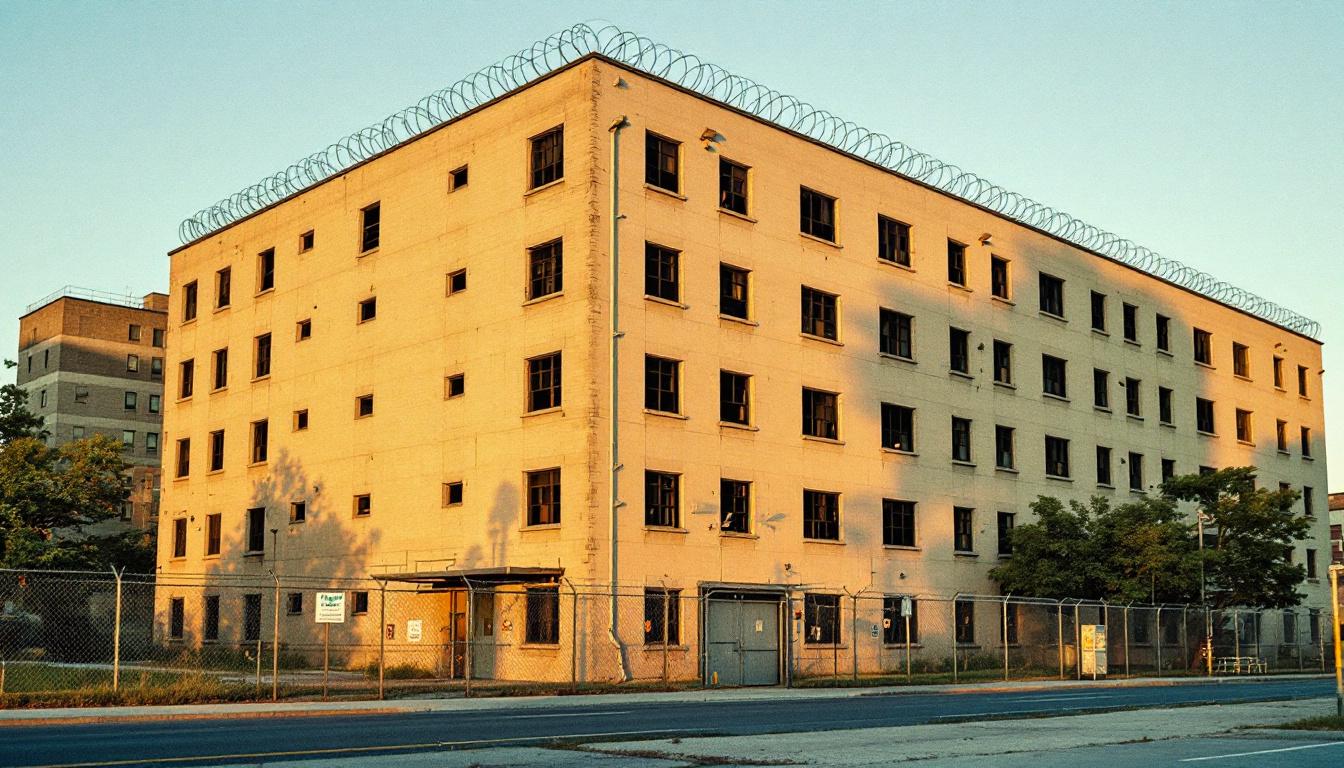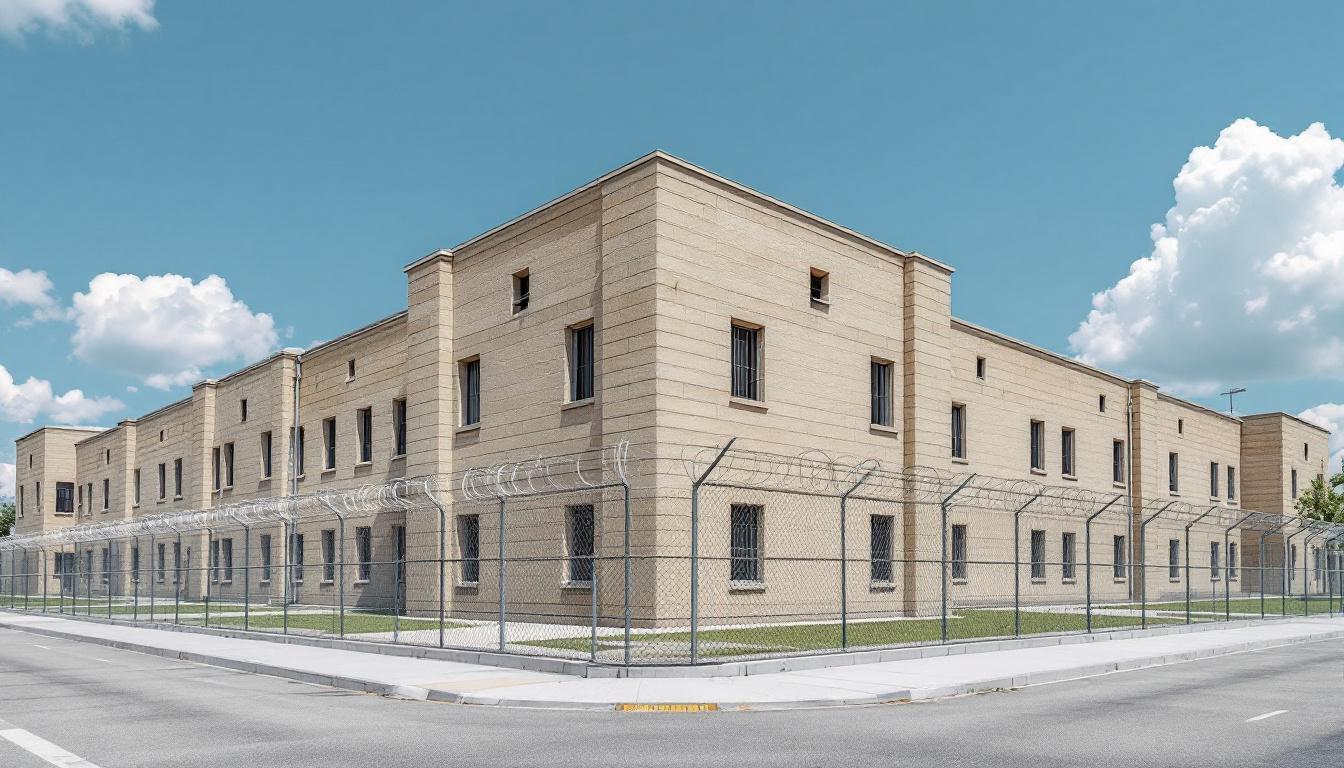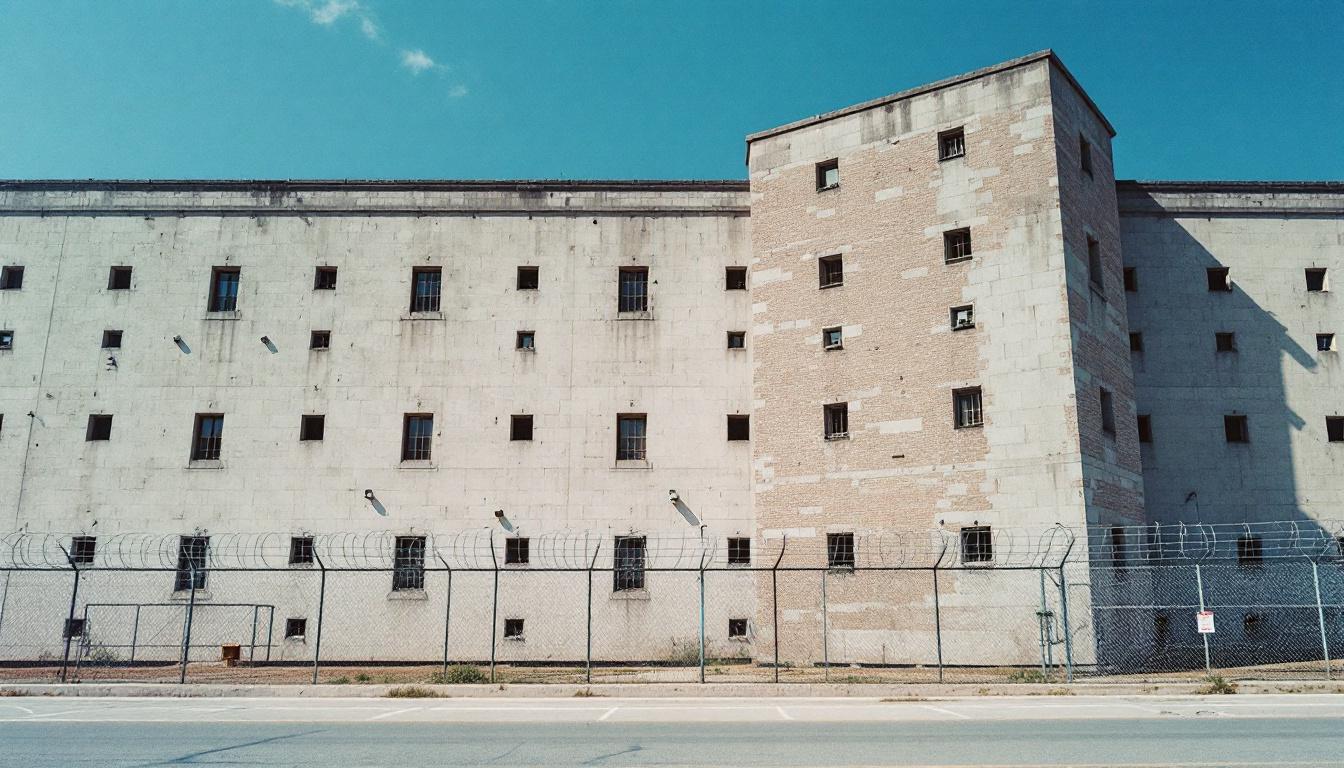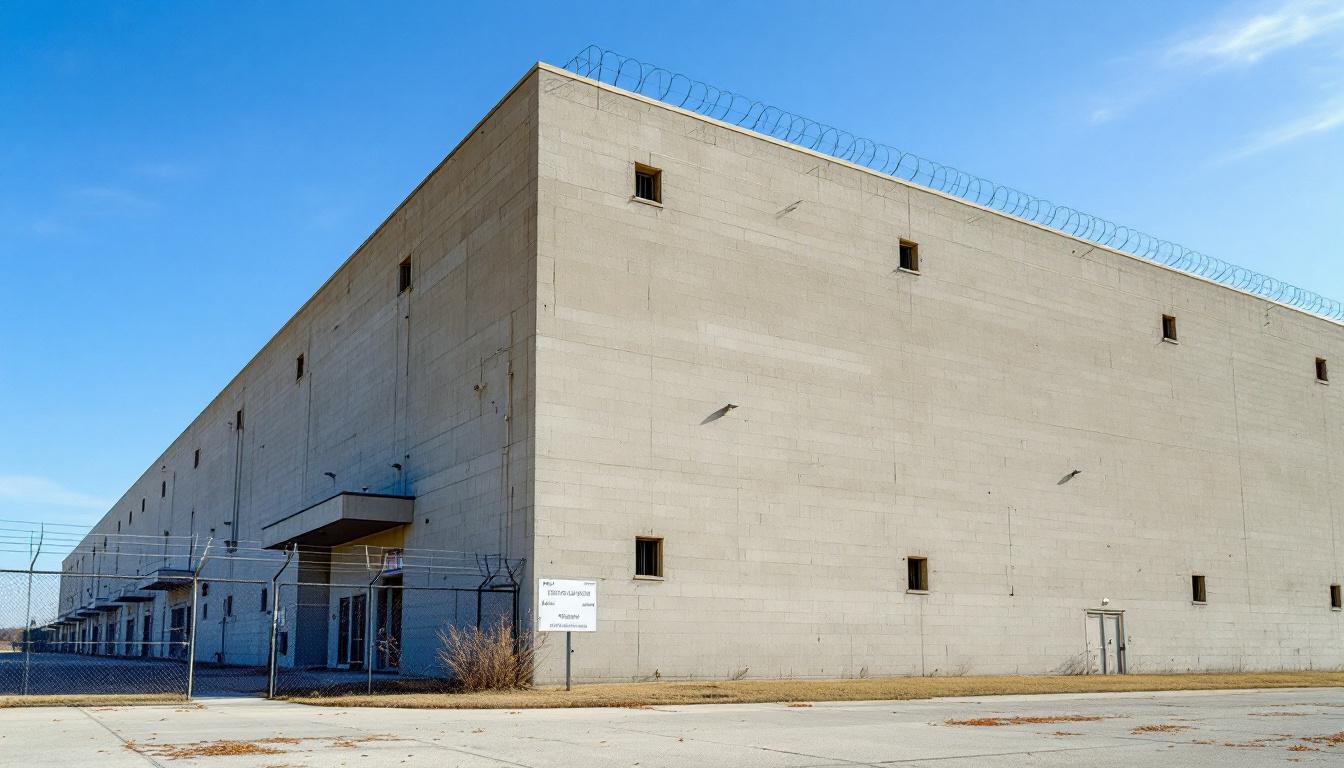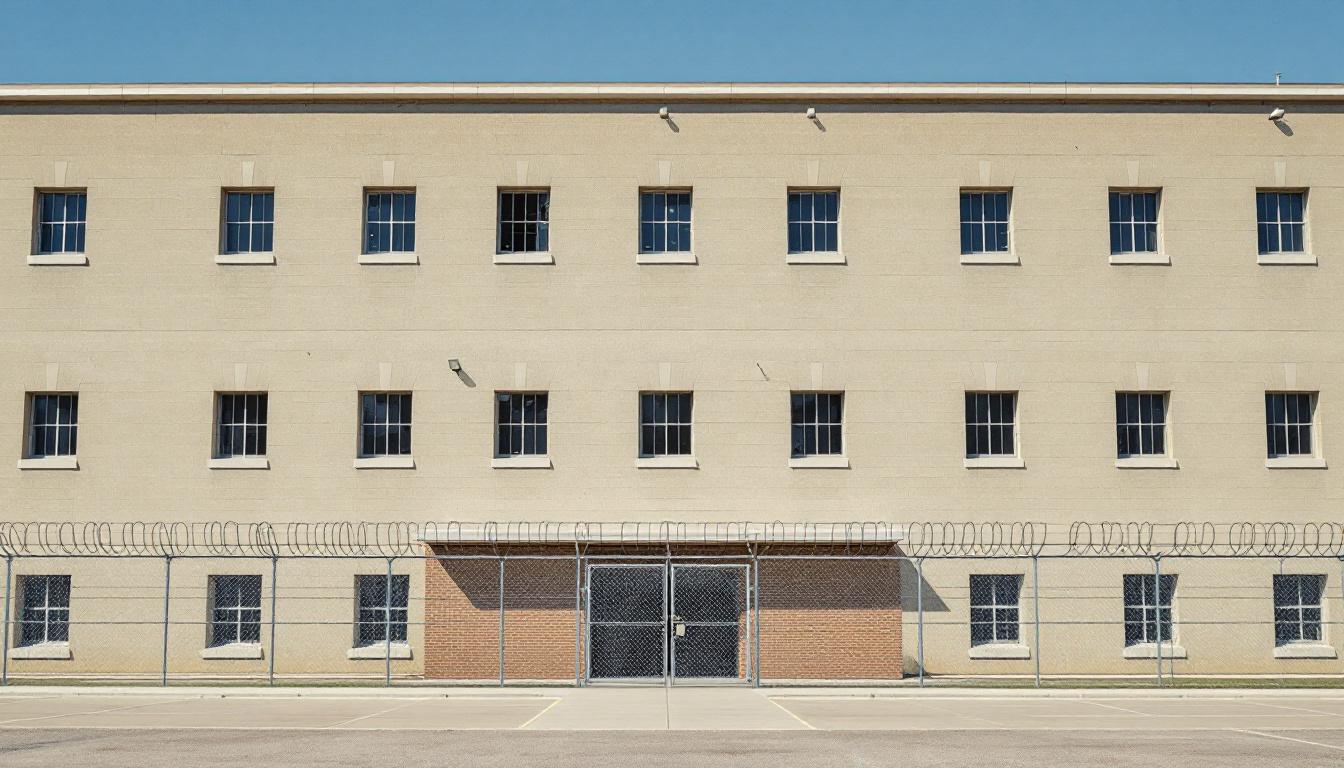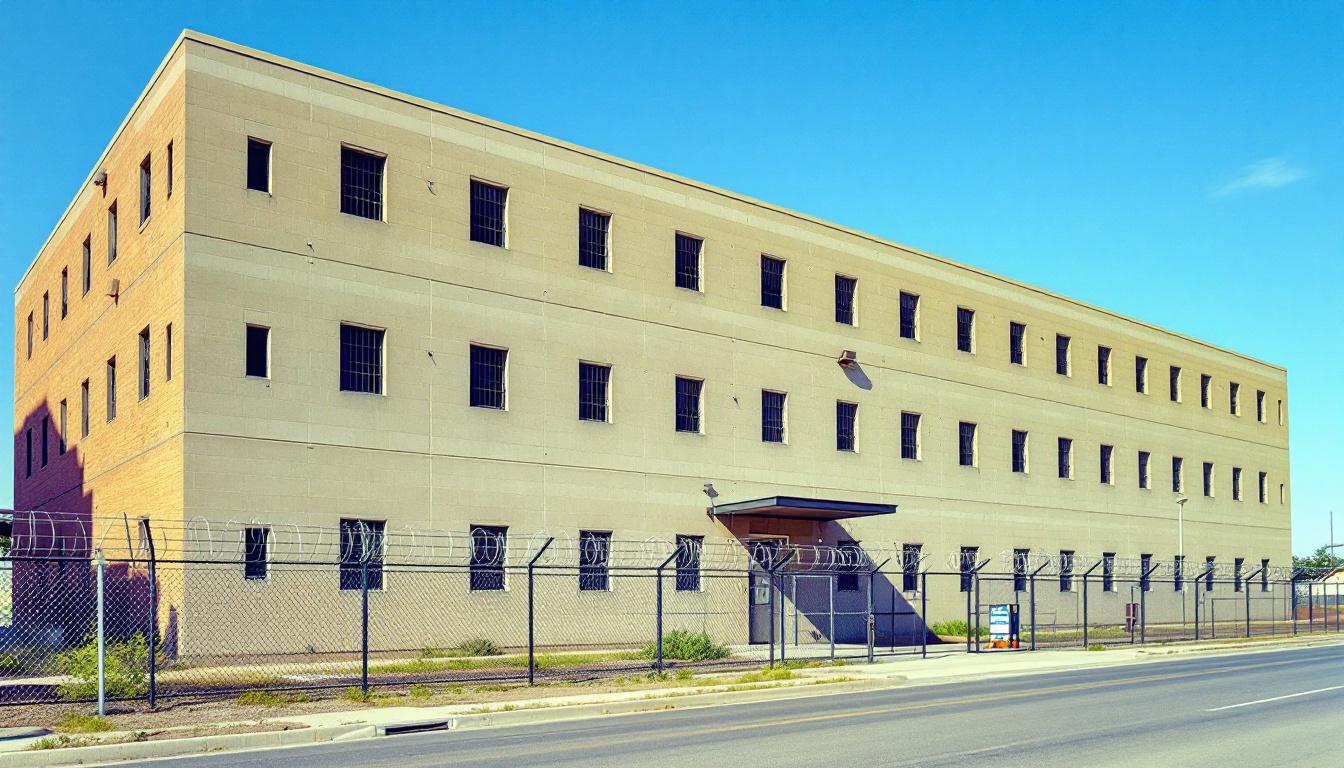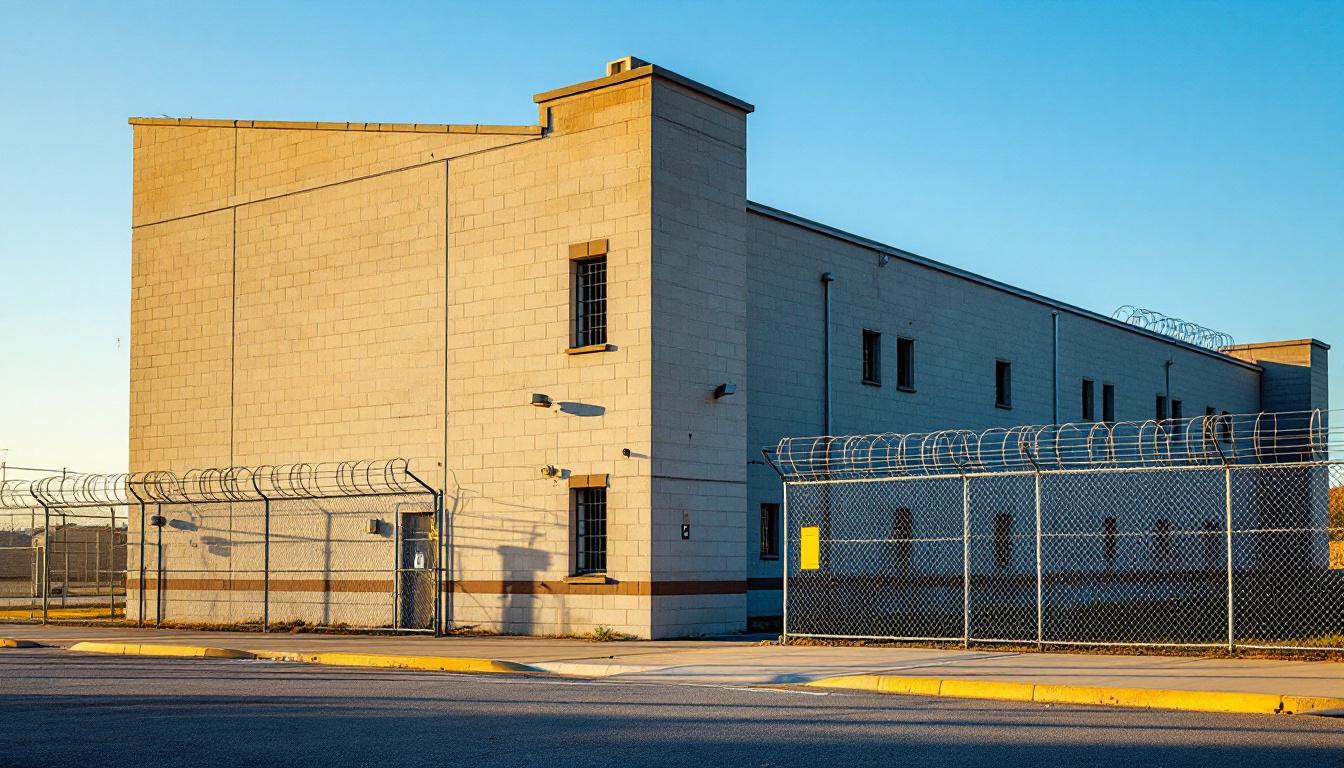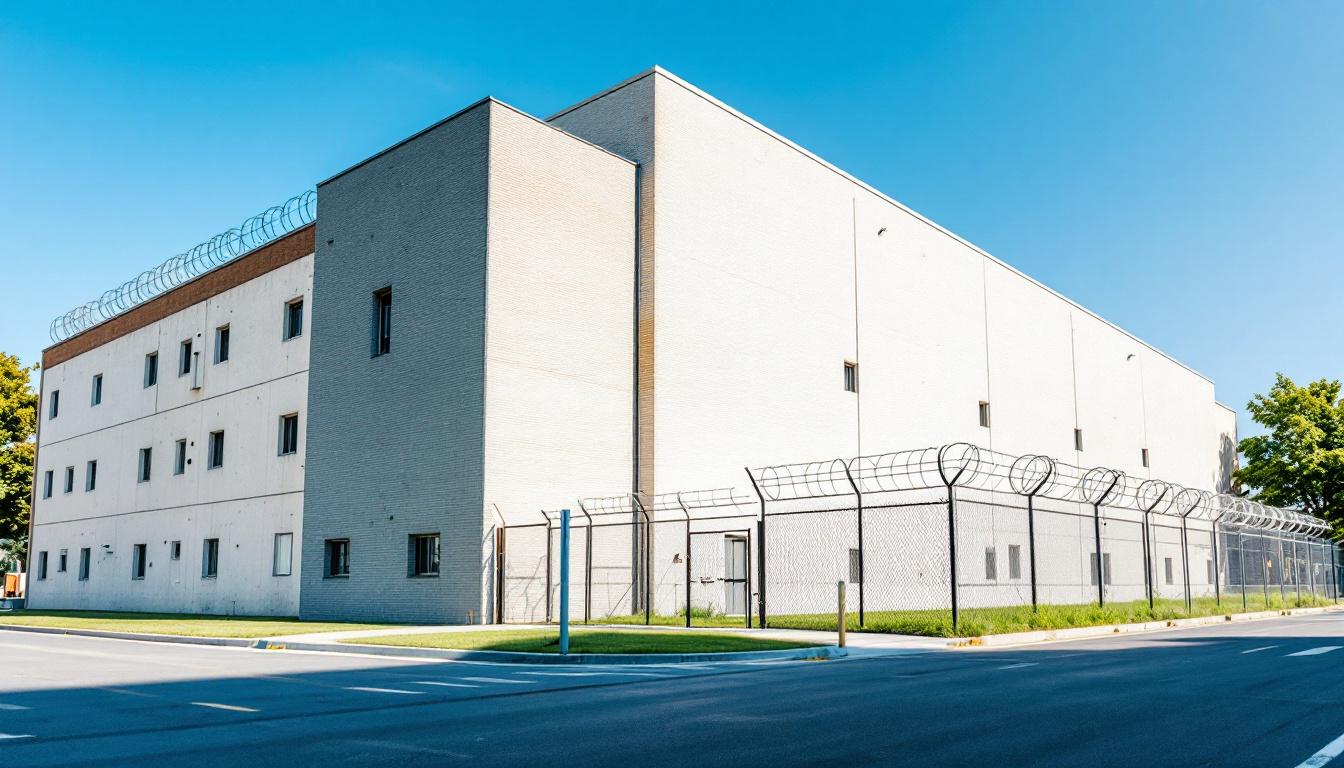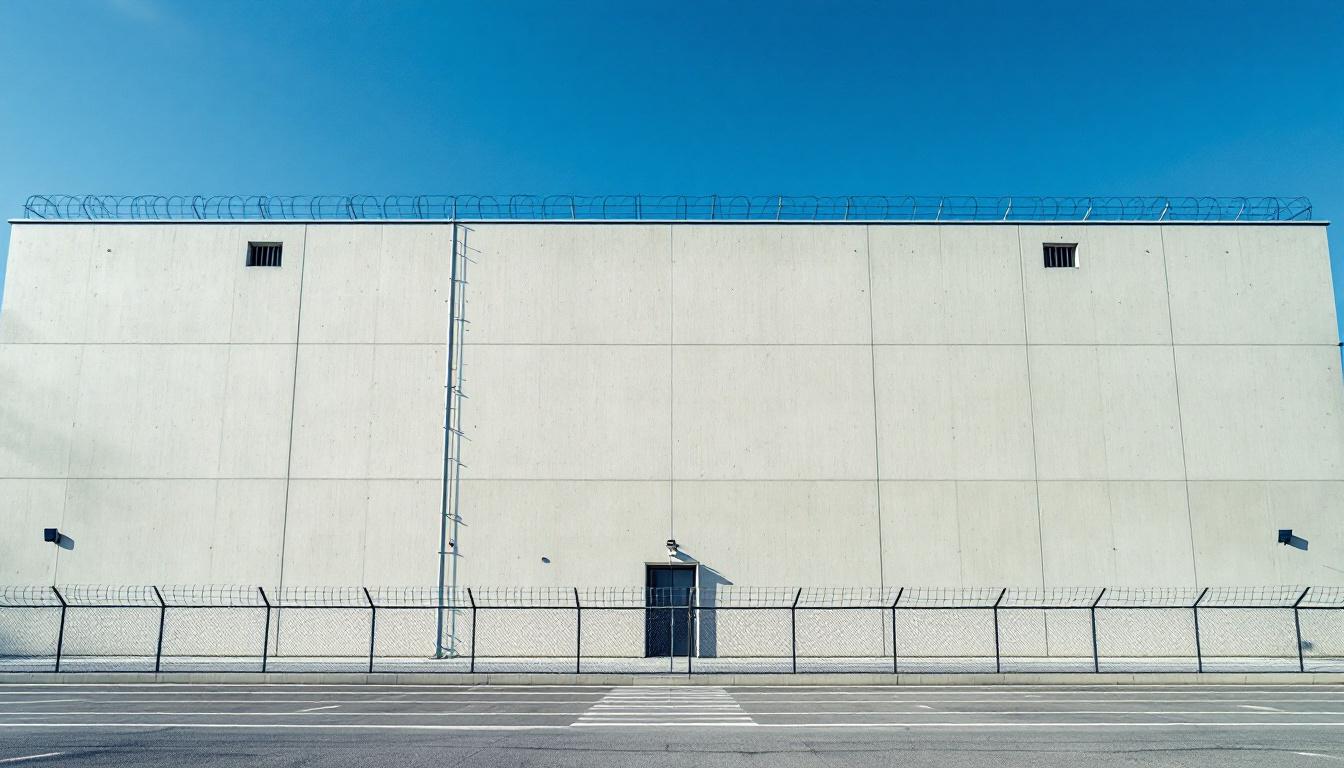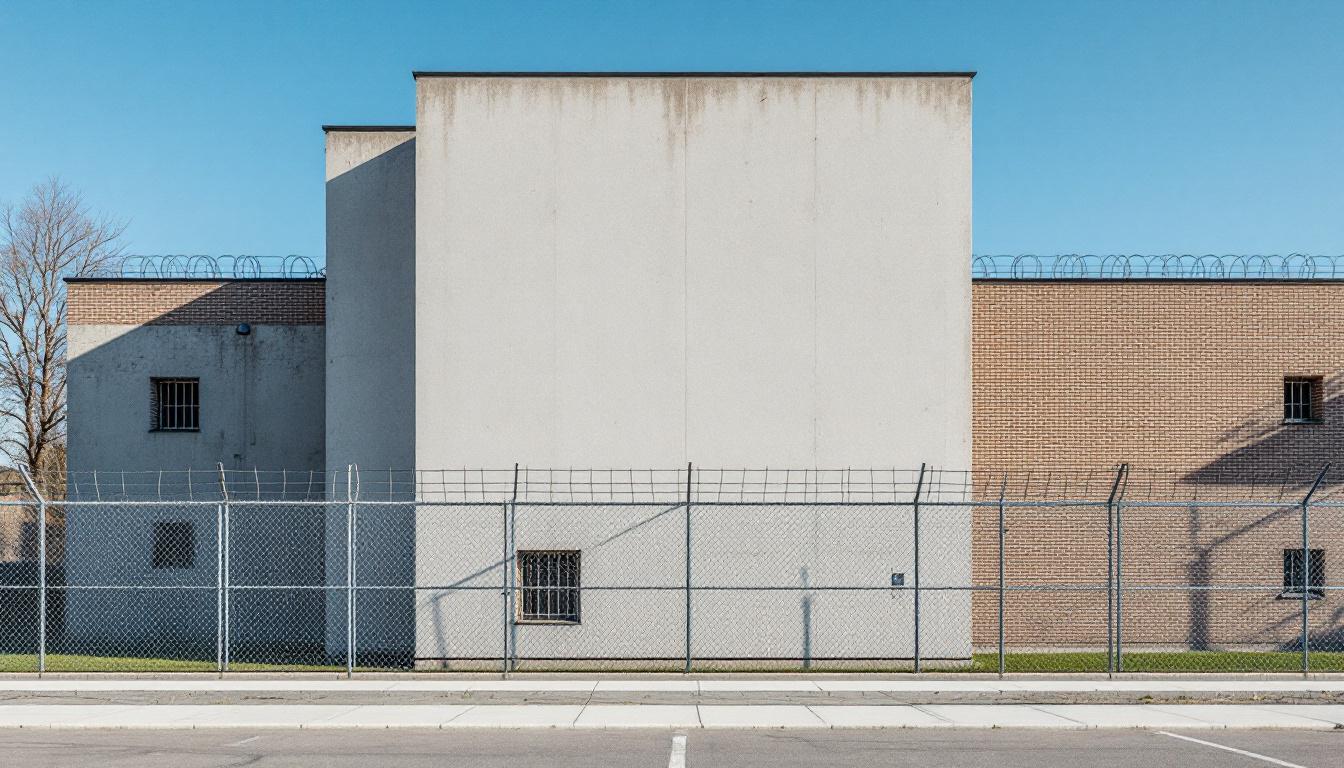
Quick Navigation
How to contact an inmate at LeFlore County Detention Center
This comprehensive guide will walk you through how to connect with an inmate at LeFlore County Detention Center. Follow the steps below to find an inmate and send letters and photos:
- Search for the inmate using our search tool below
- Create your account or log in to Penmate
- Write your message (up to 6,000 characters)
- Send instantly - inmates receive printed copies daily
Find an Inmate
Search for an inmate to start communicating today
Tip: You can search by first name, last name, or inmate ID number
To contact a person at LeFlore County Detention Center start by searching for the person on the official facility website. Perform a search by following these steps:
- Step 1: Enter their first name and last name into the search form and click "Search"
- Step 2: Locate their inmate record
- Step 3: Write down their Inmate ID and any housing information provided
Important! Be sure to enter the person's full name. Nicknames should not be used.
How to Send Messages to Inmates

You can use your phone or computer to send emails, letters, and photos to an inmate. Messages are sent electronically to inmate tablets or kiosks at the facility. If you would like to send a message, start by searching for an inmate at LeFlore County Detention Center.
Sending Photos and Postcards

A great way to send love and support to a loved one at LeFlore County Detention Center is to send photos and postcards. It only takes a few minutes to send photos from your phone and it makes a huge difference. You can also mail postcards with words of support and inspiration, or design your own postcard for special moments like birthdays and holidays.
Important! Be sure not to send any explicit photos or they may not be approved by the facility. You can also use a photo printing app like Penmate to make sure your photos are printed at the correct size (4x6 or 3x5) and are mailed according to the rules and regulations of LeFlore County Detention Center.
Frequently asked questions about LeFlore County Detention Center
-
How long does it take to deliver a message?
If you're sending an email message your letter is usually delivered within 24-48 hours. For messages sent via mail you should expect delivery within 3-7 days. All messages will need be approved by LeFlore County Detention Center.
-
How much does it cost to send a message to LeFlore County Detention Center?
You can send a message free using your phone or mail a message via USPS for the price of a $0.60 stamp and envelope. You can also purchase credits or e-stamps from services starting at $1.99.
-
What services can I use to contact an inmate at LeFlore County Detention Center?
Penmate
You can use Penmate to send letters and photos to an inmate from your phone. It's an easy way to stay in touch during your loved one's incarceration. Use the inmate locator to find an inmate's location and contact information, then you can send messages within a few minutes.
Securus messaging
Securus may be another option for communicating with an inmate at LeFlore County Detention Center. You can create a friends and family account and purchase credits to send messages. All messages will be reviewed and must be approved by the facility.
JPay
Some county jails and state prisons may support sending messages with JPay. You must register an account with the system, find your loved one, and purchase stamps to send messages. For some locations you can also attach photos.
Smart Jail Mail
You may also check if Smart Jail Mail is available at LeFlore County Detention Center. Smart Jail Mail is operated by Smart Communications and has contracted with some state and county jails. After purchasing credits, your messages and photos are sent to the facility, printed out, and then handed out to your loved one.
-
What is the mailing address of LeFlore County Detention Center?
Mailing address:
LeFlore County Detention Center
100 S Broadway St
Poteau, OK 74953
Phone: (918) 647-5013Business hours:
- Monday: Open 24 hours
- Tuesday: Open 24 hours
- Wednesday: Open 24 hours
- Thursday: Open 24 hours
- Friday: Open 24 hours
- Saturday: Open 24 hours
- Sunday: Open 24 hours
-
What are the visiting hours at LeFlore County Detention Center?
Visiting hours at LeFlore County Detention Center vary by housing unit and security level. Generally, visits are scheduled on weekends and holidays, with some facilities offering weekday visits. Contact the facility directly at (918) 647-5013 or check their website for the current visiting schedule. Visits typically last 30-60 minutes and must be scheduled in advance.
-
What items are prohibited when sending mail to LeFlore County Detention Center?
Prohibited items typically include: cash, personal checks, stamps, stickers, glitter, glue, tape, staples, paperclips, polaroid photos, musical or blank greeting cards, hardcover books, magazines with staples, and any items containing metal or electronics. Only send letters on plain white paper with blue or black ink. Photos must be printed on regular photo paper (no Polaroids). Always check with LeFlore County Detention Center for their specific mail policies.
-
How do I send money to an inmate at LeFlore County Detention Center?
You can send money to an inmate at LeFlore County Detention Center through several methods: 1) Online using JPay, Access Corrections, or the facility's approved vendor, 2) Money orders mailed directly to the facility with the inmate's name and ID number, 3) Kiosks located in the facility lobby, or 4) Over the phone using a credit or debit card. Fees vary by method, typically ranging from $2.95 to $11.95 per transaction.
-
Can I schedule a video visit with an inmate at LeFlore County Detention Center?
Many facilities now offer video visitation as an alternative to in-person visits. At LeFlore County Detention Center, video visits may be available through services like Penmate, Securus Video Connect, GTL, or ICSolutions. Video visits typically cost $10-20 for 20-30 minutes and must be scheduled in advance. You'll need a computer or smartphone with a camera and reliable internet connection. Contact the facility for their specific video visitation policies and approved vendors.
-
What identification do I need to visit an inmate at LeFlore County Detention Center?
All visitors must present valid government-issued photo identification such as a driver's license, state ID, passport, or military ID. Minors must be accompanied by a parent or legal guardian who can provide the minor's birth certificate. Some facilities require visitors to be on the inmate's approved visitation list, which may require a background check. Contact LeFlore County Detention Center for specific ID requirements and visitor approval procedures.
-
How can I find out an inmate's release date?
To find an inmate's release date at LeFlore County Detention Center, you can: 1) Use the online inmate search tool if available, 2) Call the facility's records department, 3) Contact the inmate's case manager or counselor, or 4) Have the inmate provide this information during a call or visit. For privacy reasons, some facilities only release this information to immediate family members.
Facility Overview
Contact Information
LeFlore County Detention Center100 S Broadway St
Poteau, OK 74953
Phone: (918) 647-5013
Official Website
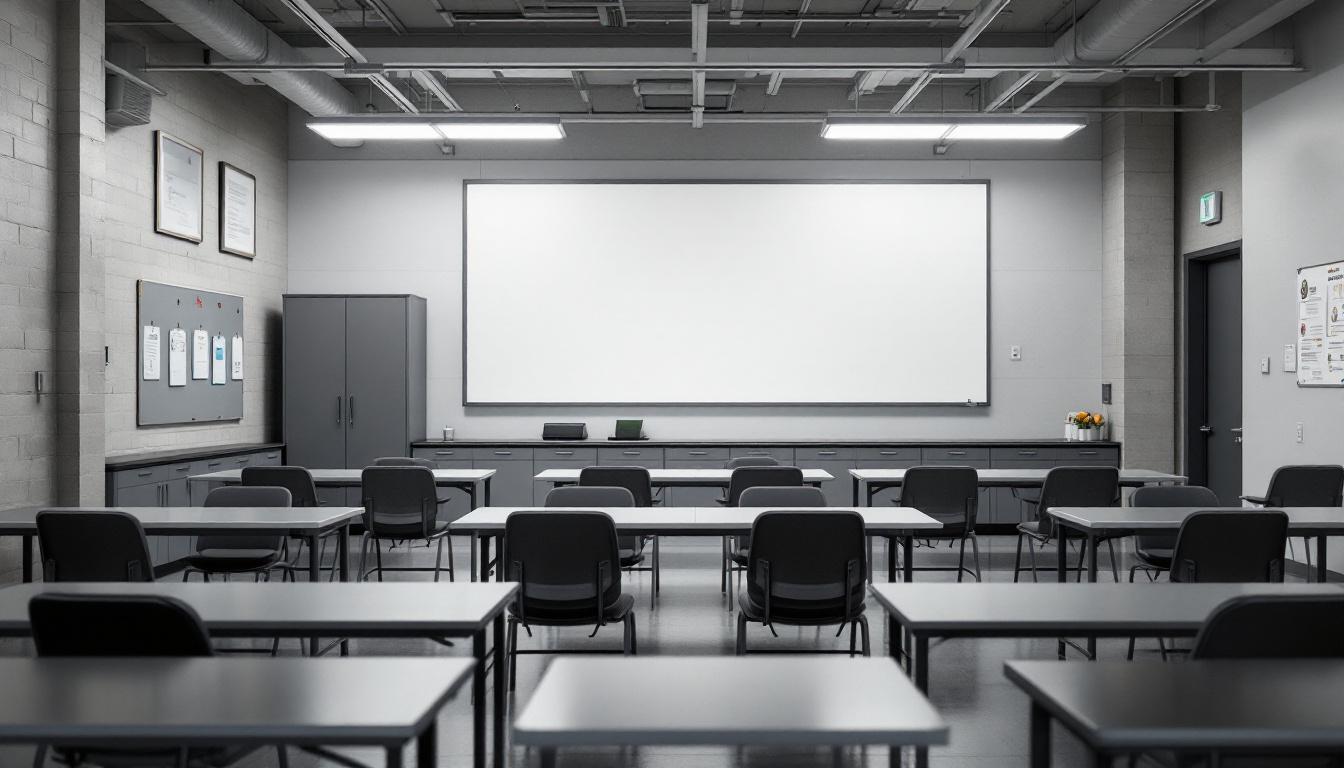
About LeFlore County Detention Center
Detention centers across Oklahoma's correctional system serve as crucial transition points where individuals await court proceedings while maintaining connections to their communities. Leflore County Detention, OK operates within this framework in Poteau, providing secure housing and essential services that typically bridge the gap between arrest and judicial resolution. The facility's location in southeastern Oklahoma positions it to serve the regional population while maintaining the structured environment necessary for pre-trial detention.
As an integral component of Oklahoma's broader correctional network, this detention center generally focuses on immediate needs such as medical screening, basic educational opportunities, and communication access that helps individuals stay connected with family members during their stay. The population services at facilities like this often include mental health support, substance abuse awareness programs, and preparation resources that may assist individuals as they navigate the legal process. These programs typically emphasize personal responsibility and community reintegration, recognizing that many individuals will eventually return to their families and neighborhoods in the Poteau area and surrounding communities.
The facility's role extends beyond simple containment to encompass rehabilitation-focused approaches that may include vocational training opportunities, counseling services, and reentry planning assistance. Staff members generally work to maintain a secure yet supportive environment where individuals can access legal resources, participate in educational programming, and receive the medical and mental health care they may need while awaiting their court dates.
Programs & Services
Comprehensive support reaches the population through carefully designed programs that address both immediate needs and long-term success. The facility typically emphasizes skill-building and personal development to help individuals prepare for successful community reintegration. These programs often focus on building confidence, developing practical abilities, and strengthening connections to family and community resources.
Educational programs may supply foundational learning opportunities, including basic literacy and numeracy instruction for those seeking to improve their academic skills. Vocational training typically includes practical skill development in areas such as upholstery and forklift operation, which can provide valuable employment opportunities upon release. These hands-on programs often help the population develop marketable skills while building work experience and professional habits.
Faith-based programs and religious services provide spiritual support and community connection for those who choose to participate. Also available are reentry preparation services that may include life skills training, job readiness instruction, and assistance with transition planning. These support programs typically focus on helping individuals develop the tools and connections needed for successful community reintegration, often emphasizing family relationships and community ties that can provide ongoing support after release.
Daily Life & Visitation
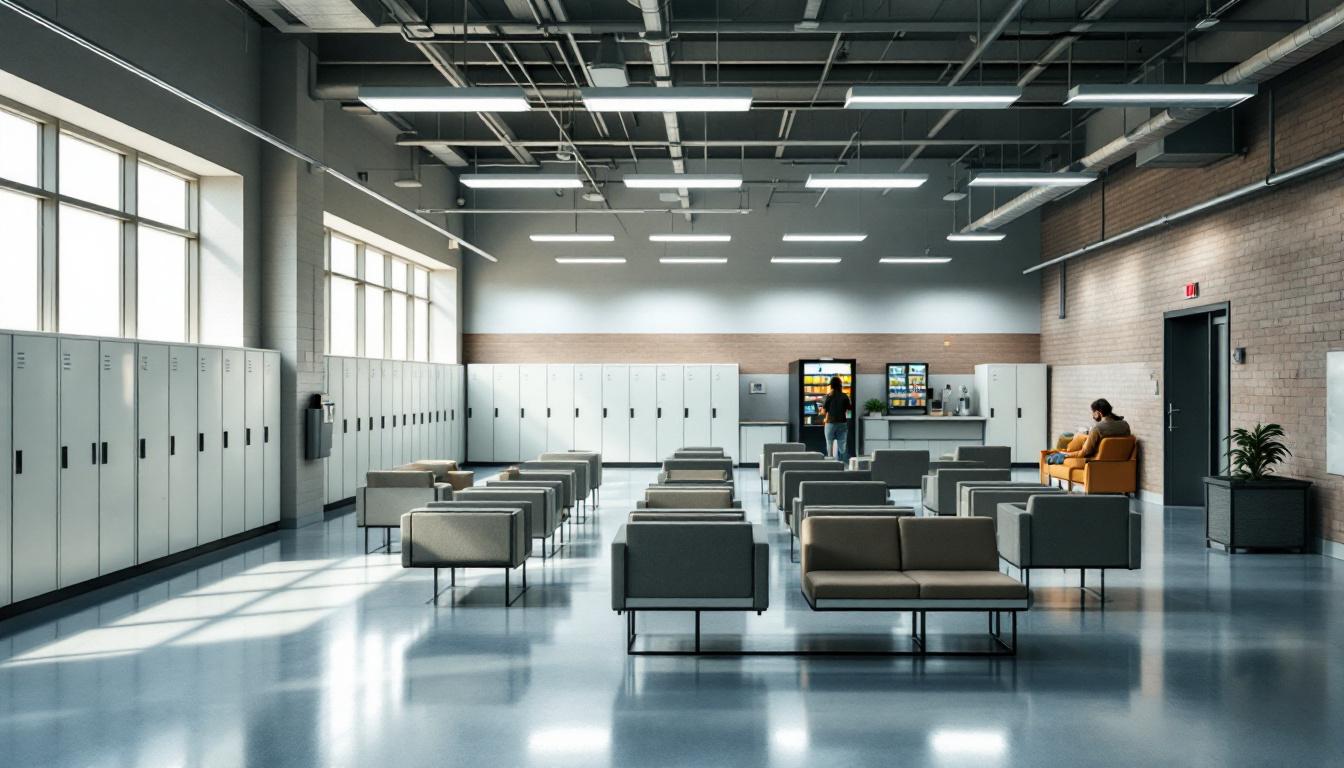
Structured protocols and established routines shape every aspect of the experience for the population at LeFlore County Detention. Today's schedule typically begins with early morning counts and meal service, followed by consistently organized periods for housing unit activities, work assignments, and programming. The facility generally maintains predictable daily rhythms that supply both security and stability for residents navigating their time in custody.
Housing accommodations typically consist of dormitory-style units or individual cells, depending on classification levels and available space. The population generally shares common areas within their designated housing sections, where they may access basic amenities and participate in unit-based activities. Also, meals are usually served at scheduled times in designated dining areas or delivered to housing units, with menu planning that aims to meet basic nutritional requirements while accommodating dietary restrictions when possible.
Work assignments often supply structure during weekday hours, with the population typically participating in facility maintenance, kitchen duties, or administrative support roles. However, recreational opportunities may include access to television areas, reading materials, and outdoor exercise periods when weather and security conditions permit. Family connections are generally maintained through scheduled visitation sessions and telephone privileges, while commissary services typically allow residents to purchase approved personal items and snacks to supplement their daily needs.
Ready to Connect?
Start communicating with your loved one today
Search for an Inmate
